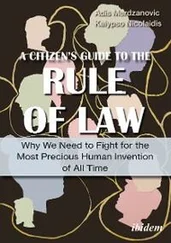With no fighting, the army milled aimlessly while Hamilton flung himself into action, determined to crush something, anything. Until Hamilton was convinced a citizen had signed the amnesty resolution, he was fair game for arrest. A midnight sweep of suspects at bayonet point resulted in a raft of indiscriminate arrests where everyone was tossed into makeshift jails to await interrogation. A federal judge had been dragged along to aid the judicial process, but since they were in a war zone, (although there was actually no war) grand juries were conveniently ignored. There were charges of rough treatment and nights spent in freezing barns as suspects waited to be interrogated, many of whom Hamilton questioned personally. The master multitasker easily donned the extra role of inquisitor in chief.
The peacemaker Hugh Brackenridge was put under extreme scrutiny due to his position at the head of the rebel march into Pittsburgh. But Brackenridge managed to convince Hamilton after two days of desperate pleading that he wasn’t actually a rebel and was released, cleared of all charges. Eventually just about everyone arrested was cleared and released.
The same governmental momentum that had decreed the useless invasion demanded a show trial back in Philadelphia. On Christmas morning 1794, Hamilton paraded the rebels through the streets of Philadelphia and into jail cells after a long, brutal trudge over the mountains. He prepared cases against twenty prisoners. Twelve cases were finally brought, and two were found guilty. The ever-reticent President Washington then pardoned the pair. It all wrapped up over a year later.
Federal armed suppression of the rebellion had worked. The rule of law would no longer be widely flouted, at least in Pittsburgh. Taxes and rents would be paid. Land values rose. Absentee landlords had nothing to fear. The whip had been cracked. The federal government was here to stay.
When Washington left office in 1797, Hamilton returned to New York to practice law and assume the role of political big shot. In 1801 Thomas Jefferson became ascendant and was elected president, placed there by Hamilton, who chose him over his even-more bitter enemy Aaron Burr, who was relegated to the vice presidency, even in those early days firmly established as a stupid and useless office. Hamilton and Burr worked themselves into a gentlemanly lather and met in 1804 in Weehawken, New Jersey, to settle their differences. Burr shot Hamilton during the duel and the would-be king died a few days later. As a consolation for his early death he got his face on the $10 bill. Jefferson ranked only the ever-elusive $2 bill.
As the first former president, George Washington retired to make money. Long after his death he got a monument, a university, a city, and a state named after him. Despite that, he could get his face only on the $1 bill, plus the quarter thrown in.
David Bradford fled into the wilderness to avoid Hamilton’s soldiers, floated down the Ohio to the Mississippi, and eventually surfaced in Spanish-controlled Louisiana. In 1799 President John Adams pardoned him for his role in the rebellion. In 1959 his house in Pennsylvania was converted into a museum.
For the most part, the rebels fled Pennsylvania and moved farther out into the frontier to continue making their whiskey, free from government interference. One of the most popular places they landed was Kentucky, turning that state into the whiskey-making center of the United States.
In one of the most ambitious quick-stepping surges of power in American history, Hamilton relocated the U.S. capital, rejiggered the debt for the federal and state governments, created the country’s first internal tax, raised its first army to quash opposition to his scheme, and invaded Pennsylvania. All before his fortieth birthday. He achieved a staggering number of accomplishments in a short amount of time, but the whiskey tax was not destined to be one of his lasting legacies.
One of Jefferson’s first acts as president in 1801 was to repeal the whiskey tax.
FOUR.
THE WAR OF THE TRIPLE ALLIANCE: 1865
Some dictators work alone. Others need the love of a good woman to fully ripen their true evil.
In the nineteenth century, Francisco Solano López, Paraguay’s megalomaniacal, misshapen ruler, provoked a war with the country’s three larger, richer, and more powerful neighbors for no reason other than to gain fame and respect for himself and his mistress. Eliza Lynch, a former Parisian prostitute, was his full partner in a tango of craziness that resulted in Paraguay suffering such a beat-down that 150 years later the country still reels from the pounding it endured.
This loving couple tortured, killed, and robbed the entire population of Paraguay. It’s one of the most twisted love stories of all time.
Francisco Solano López — The dictator of Paraguay, he started the war to gain respect and somehow convinced his people to fight until more than half of them were dead.
Skinny — Compared himself to Napoleon and Alexander the Great. It would have been true if Napoleon and Alexander had been fat, ignorant failures from obscure countries.
Props — Started the first telegraph line in South America.
Pros — On a Grand Tour to Paris he had a private audience with French Emperor Louis Napoleon and Empress Eugénie.
Cons — When López tried to kiss the empress, she was so disgusted she turned away and threw up.
Eliza Lynch— dedicated mistress to her man and mother of his seven children, she stayed with her beloved dictator to the bitter, bitter, incredibly bitter end.
Skinny — Parisian prostitute of lowly Irish birth, she slept her way to the middle of Parisian society, snared López, and sailed away to her dream world as the despised mistress of an impoverished and war-wracked South American country.
Props — Wore a gown to López’s burial. An odd choice, not least of all because she was forced to dig his grave with her own hands.
Pros — Bounced back well from devastating defeats such as the destruction of her adopted country due largely to her own efforts.
Cons — Robbed the country blind and shipped the booty off to her European bank account.
Paraguay is a landlocked, isolated, and widely acknowledged unimportant country — half jungle, half desert, and poor all over. It has always been this way. Its isolation has made it a magnet for foreigners looking to disappear from the beaten track. And its isolation forms perhaps the perfect breeding ground for maniacal and homespun dictators, able to prey on an ignorant and secluded people who are largely unaware that life is not always miserable and filled with swarms of ambitious parasites. They consider their country an island in a sea of land.
Originally discovered by Portuguese explorers searching for gold, Paraguay was settled in 1537 by a group of Spanish conquistadores under the leadership of Domingo Martínez de Irala, who stopped beside a hill on the Plate River and fought a short battle with a distressed local band of Guarani Indians. With their leader killed, the natives offered the Spanish a small harem of young women as a sign of peace. The Spanish, horny and quite far from home, readily agreed and snuggled down for two decades of baby making with the locals. Irala is now one of the most common surnames in Paraguay.
The country settled into nearly three centuries of consistently minor-league status within the Spanish Empire. It achieved independence in 1811 during South America’s revolts against Spain. Happy times were short-lived, however; in 1814 the country came under the thumb of the ruthless dictator José Gaspar Rodriguez de Francia, known as “The Supreme One.” For the next twenty-six years he closed the borders and had his way with his lonely country; killing perceived opponents, seizing church property, dominating all commerce, and treating the people like badly behaved children. The result was a country filled with politically enfeebled citizens with little knowledge of the outside world. After the death of their dear leader in 1840, the people of the pathological country referred to him as “The Defunct One.”
Читать дальше












